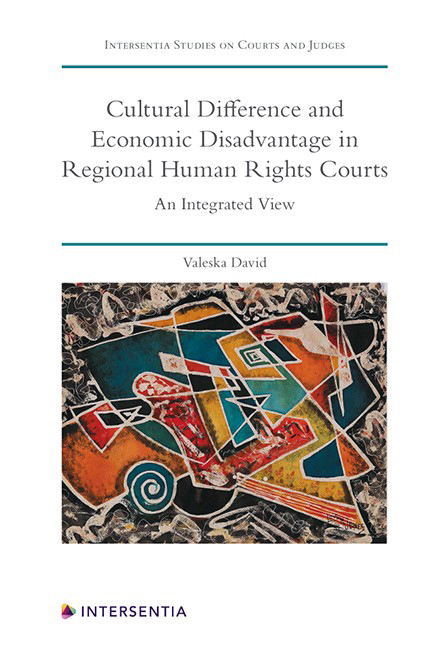
- Publisher:
- Intersentia
- Online publication date:
- July 2020
- Print publication year:
- 2020
- Online ISBN:
- 9781839700118
- Subjects:
- Law, Humanitarian Law
Last updated 09/07/24: Online ordering is currently unavailable due to technical issues. We apologise for any delays responding to customers while we resolve this. For further updates please visit our website: https://www.cambridge.org/news-and-insights/technical-incident


More and more people are turning to human rights courts to seek protection against prejudice, disadvantage or exclusion on account of their cultural and economic particularities. Human rights courts are thus increasingly faced with the difficult task of deciding these cases, which raise a number of complex and contested legal questions. To what extent can courts accommodate cultural diversity, protect all kinds of groups or interfere in socio-economic policy? This book argues that one of the problems encountered in dealing with such cases is the courts' tendency to assess them from a 'compartmentalised' or fragmentary perspective. This line of reasoning isolates or places into 'boxes' the various interrelated components of the right holder's claim and the norms concerning the case to their detriment. This book critiques this reductionist approach that is out of touch with real life and which, moreover, tends to leave the roots of the alleged violations intact. To counterbalance this tendency, an innovative, integrated and person-centered approach to adjudicating claims of cultural difference and economic disadvantage is put forward. Drawing on the concepts of intersectionality, indivisibility and normative interdependence, the book presents specific notions and methods for approaching the appreciation of rights holders, harms and norms in a holistic manner. A wide selection of case law from both the European and the Inter-American courts of human rights supports the normative framework developed in this book. The sample mostly includes cases brought by Muslims, Roma, Travelers, indigenous peoples, afro-descendants and people living in poverty. Cultural Difference and Economic Disadvantage in Regional Human Rights Courts: An Integrated View combines legal theory with practical insights in analysing both cultural an economic issues, which are rarely addressed together in human rights legal scholarship. It also offers a context-sensitive and relational view of human rights law that puts rights holders at the heart of the legal analysis, taking heed of the social structures within which legal frameworks operate. The book makes for compelling reading for students, academics and practitioners working in the fields of human rights law, jurisprudence, constitutional law, legal theory and feminist and cultural studies. Valeska David is a lawyer from Chile. She holds an LL.M from Utrecht University and a PhD from Ghent University. She has previously worked as a legal consultant, researcher and lecturer for human rights institutions in Latin America and Europe.
 Loading metrics...
Loading metrics...
* Views captured on Cambridge Core between #date#. This data will be updated every 24 hours.
Usage data cannot currently be displayed.